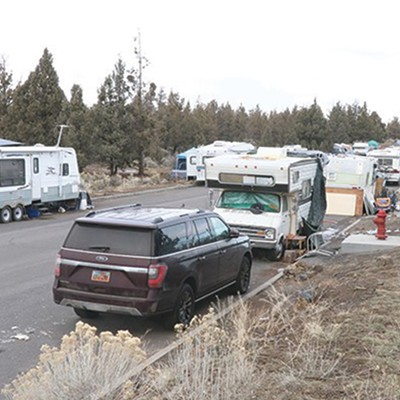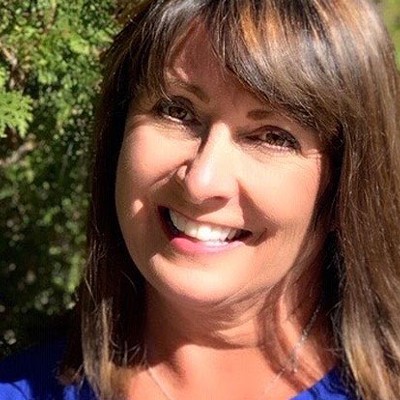She flies with her own wings. Could Oregon have a more fitting state motto? In 1987, then-Secretary of State Barbara Roberts introduced a bill to change Oregon's motto from the previous Latin version, Alis Volat Propitis, to its English version, "She flies with her own wings." Kind of a fitting move for the woman who would later become Oregon's first female governor, don't you think?
It was just one of the many tidbits of Oregon history that I learned on my two journeys to visit our state's two female governors; one current, one a glass ceiling-breaking trail blazer (and avid Trail Blazers fan) who continues to garner respect and speaking engagements across the state.
In honor of the 2017 Source Women's Issue, we thought, why not aim high, and ask to profile two of the most powerful women in the state? So we aimed high.
Here's just a small window into the worlds of current Oregon Gov. Kate Brown and former Gov. Barbara Roberts.
Gov. Kate Brown
Gov. Kate Brown, Oregon's governor since 2015, has always aimed high. Now Oregon's second woman governor, she had even bigger plans as a youngster.
"I remember telling my mother when I was quite young, I believe in 3rd grade, that I wanted to become President of the United States," Brown told the Source Weekly one recent afternoon in her office in Salem. "And my mother said to me, 'We don't have enough money.' And this is fairly ironic because my dad was a physician, and so I think it was her way of saying girls can't be President of the United States."
Brown says it was about that time when she decided she wanted to become a lawyer, eventually earning an undergraduate degree from the University of Colorado and a law degree from Lewis and Clark College.
"For me it was about having the tools to achieve justice and equality in this world," Brown says. She worked for those things in her own community from a young age too, including talking to the Episcopal minister at her church in Roseville, Minn. about allowing girls to be acolytes.
"There were clearly strong messages being sent to me culturally that, you know, girls were limited in what they could do, " Brown says. "And it was also... what I would consider sort of the second wave of the feminist movement, and so I clearly picked up on that. I'm an avid reader." Following her education, Brown worked as a family law attorney and began lobbying in the state Legislature.
"During the '91 session I was working as an advocate on behalf of a women's organization. At the time the collective women's organizations in the state, Planned Parenthood, AAUW, pooled their resources to hire a lobbyist," Brown said. "I got to be that advocate in the '91 session, and I worked with a coalition of advocates to pass Family Medical Leave. And when Gov. Barbara Roberts signed that bill into law, Oregon became one of the first states in the nation to pass Family Medical Leave."
Push the clock ahead to 2017, and Brown remains hopeful that the next piece of the family leave puzzle makes it through the current legislative session.
House Bill 3087—referred to the House Revenue Committee April 18—is an insurance bill that would offer paid family leave for a new child, during serious illness, or to care for a sick loved one.
Meanwhile, it's next to impossible to talk about women's health these days without mention of Planned Parenthood. With threats to defund Title X, the funding channel that supports Planned Parenthood, coming from the federal level, it's definitely on the governor's mind.
"I am extremely concerned about the attacks on Planned Parenthood that are happening at the national level and the move to defund Planned Parenthood," Brown laments. "One, why would you increase the number of unplanned pregnancies? Why would you reduce access to birth control, other than you really want to control women's lives? I don't know the answer to that. I really don't. And why would you increase the number of abortions? Because that's exactly what you do when you reduce access to contraceptives and family planning."
For Brown, the rationale that funds would be diverted into other neighborhood health centers, as Rep. Greg Walden—a key arbiter of the Republicans' proposed American Health Care Act—touted at his Bend town hall, doesn't pan out.
"The model of what you think a healthy person needs is frankly a white, male model. And so our insurance coverage was built on that," Brown said. "We fought many, many years to get insurance coverage for mammograms and gynecological exams. We fought for a number of years to get coverage for contraceptives. In fact, I fought 16 years to get this Legislature to require insurance companies to cover contraceptives. That's a lot of fighting."
Meanwhile, a state budget shortfall of $1.6 billion looms large in Brown's world—a brand of crisis that would seem familiar to Gov. Roberts, who faced a $1 billion shortfall following the passage of the property tax-limiting bill, Measure 5. Today, Brown has put a number of cost containment strategies in place for state government, in response to the budget deficit.
One thing Brown appears unwilling to compromise on: funding for basic programs for women and children, including cuts to TANFF, (Temporary Assistance for Needy Families) employment related day care and child welfare. Support systems such as those, Brown says, help to "lift these families out of poverty and allow them to be productive and thriving in the communities around the state."
Gov. Barbara Roberts
In 2015, women earned 84 cents on the dollar compared to their male counterparts, according to data from the Pew Research Center. When it comes to the governor's chair, women hold just 10 percent of the seats in 2017. Still, if you want perspective on the prospects for women not long ago, rewind one generation from Brown's.
"I was salutatorian in my high school graduating class, and no one ever suggested I should go to college. No one. Not an advisor, not a teacher, not a parent," Gov. Barbara Roberts, who served as governor from 1991 to '95, tells me, when we met at her elegant condo in Portland's Sellwood neighborhood. It's an anecdote I've also just read about in Roberts' autobiography, "Up the Capitol Steps," published in 2011.
"I saw myself being a wife and mother," Roberts said. Wife and mother she became, marrying her high school sweetheart even before her official high school graduation date.
After her marriage to Neal Sanders, Roberts would give birth to two boys, the elder of whom, Mike, would eventually be sent home from school permanently when teachers were unable to cope with his then-undiagnosed autism. In the late '60s and early '70s, with no Americans with Disabilities Act in place, schools were not mandated to provide an education for kids like Mike. Buoyed by support from other parents in similar situations, an eager mother set out to lobby the state legislature to pass a law giving disabled kids the right to an education.
"When I stepped into that role as a part-time lobbyist, unpaid, inexperienced, scared as hell... when I stepped into that role, the likelihood of my ever being able to get a bill passed, I can't tell you how poor the odds were. They were pretty poor. But sometimes you discover your strengths when you have to use them," Roberts now says. Against the odds, and amid a divorce, her bill was successful.
"My son got an education, I got a whole new path for my future, I found I could make a difference in the political process, I could change people's lives and directions."
Roberts went on to run for the Parkrose School Board, and then the Mt. Hood Community College board, a short stint as an appointed Multnomah County Commissioner, and a run for the state House. Like many other women, Roberts says, women often start their political engagement in a school, or on a school board, galvanized by an issue related to their kids.
"My son often tells people, 'If it weren't for me my mother never would have been governor,' and we all laugh, but the truth is, that's the truth," Roberts said. "I was a single woman, my husband ran away with my best friend—it was a B grade movie—and I had two kids, no child support, no college education, and out of that experience in the Legislature my life began to change."
After serving in the state House as House Majority Leader, Roberts—who had by then married longtime state legislator Frank Roberts—tackled yet another hurdle: becoming the first Democrat in 110 years to win the Secretary of State position—next in line for the Governor's spot. After six years in the seat, then-Governor Neil Goldschmidt gave her a couple days "heads up" that he was likely not to run again, leaving the door open for Roberts to break Oregon's biggest glass ceiling.
It was a glass ceiling that came with many double standards, Roberts now says.
"I think I had a higher standard set for me by others, as well as myself, because people wanted you to be badder, they expected that you were going to be a dirty campaigner, that you couldn't use a cuss word in public," she says. "How you dressed mattered, how you groomed mattered, everything mattered. I mean, John Kitzhaber could wear blue jeans all he wanted. I could not do that. I couldn't even wear slacks. I got criticized for wearing slacks on the campaign, even when I was at a forest fire.
"I always felt I carried an extra burden, if you will, as a woman candidate, to be honest and to be ethical, because I set the example not just for me but I set the example for every other woman who was running, and for every little girl who watched us run," Roberts reflects.
These days, Roberts, now 80, still maintains a brisk schedule of public appearances. This political season she's especially excited about the school board races in Woodburn and Salem-Keizer, where four Latino candidates are on the ballot. In the case of the race for the Salem-Keizer school board, Roberts hopes to see the first-ever Latino board member elected this season. She recently spoke at a rally in support of the candidates.
"The community is in such a fear place right now, that whenever they gather in big numbers, there's some threat, and so they hoped that my being there would get people to come out and not be afraid," Roberts said.
Days ago it was a rally in Salem. The day after our meeting, it was marching in an Autism Awareness Day walk. Whether former or current governor, the schedule stays full—something that Roberts believes our new president shouldn't be surprised about. Last week, the president said of his job that he hadn't imagined it to be so hard.
"If you've never held a public office, you don't know how hard it can be," Roberts says, wisdom lacing her tone. "Even a school board office can be pretty hard. You make decisions for people's lives and it's hard. And the dramatic weight on the shoulders of a President of the United States, the health of a nation, the safety of a nation, the courts systems, the corrections, the environment, all of that is on your shoulders. And that's hard."
PEW - http://www.pewresearch.org/fact-tank/2017/04/03/gender-pay-gap-facts/



























